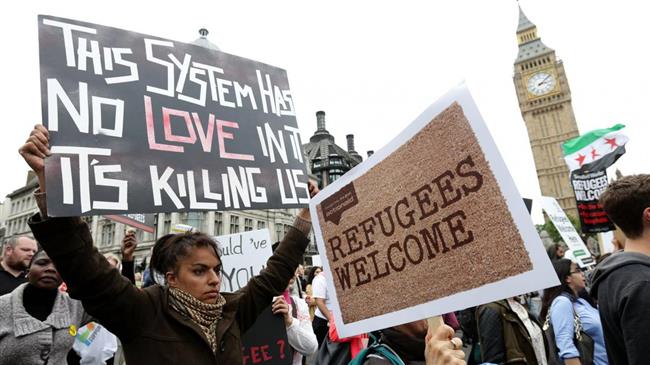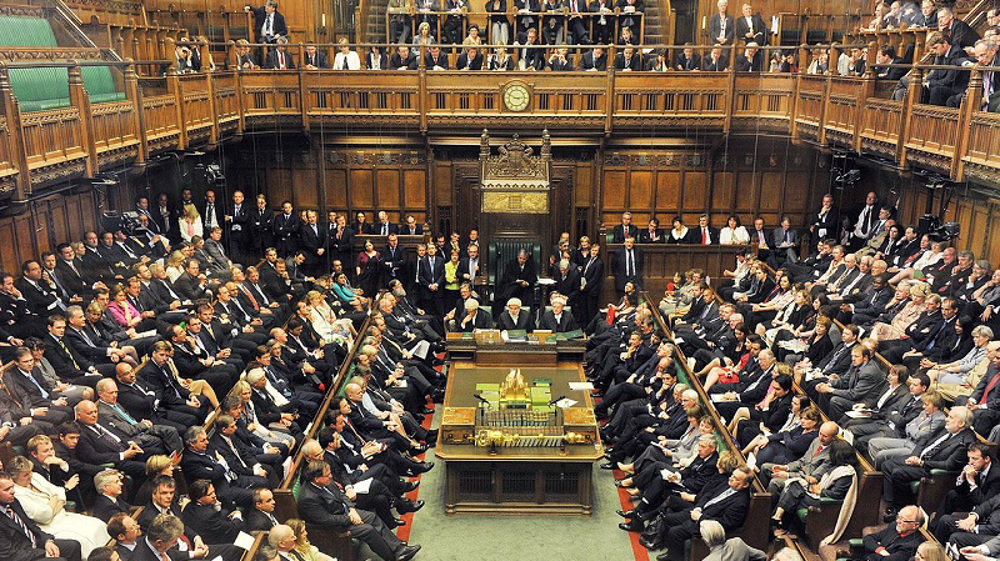Asylum seekers could bring £42 million to UK economy if allowed to work: Study
A new study has shown that asylum seekers, who are regularly attacked by Britain’s right-wing media, could contribute £42.4m to the UK economy if they were allowed to work.
The study by the Lift the Ban coalition, a group that campaigns for the right to work of asylum seekers, shows that if half of people seeking asylum earned a national average wage, £42.4m would be recouped by the government through tax and national insurance payments and savings on financial support.
The study also shows that the public is in favor of lifting the ban, with 71 per cent agreeing that people seeking asylum should have the right to work.
People seeking asylum in the UK are only allowed to work if they have been waiting on an asylum claim for 12 months or more and they can fill a role on the “shortage occupation” list, which includes positions such as classical ballet dancers and geophysicists.
In practice, this means people are essentially banned from working while they wait months, and often years, for a decision on their claim, living on the £5.39 a day the government provides.
The Lift the Ban coalition, which is a group of 80 organizations including non-profit organizations, think-tanks, businesses and faith groups, has called on the government to give asylum seekers and their adult dependents the right to work after waiting six months for a decision on their claim, and unconstrained by the shortage occupation list.
The Home Office (interior ministry) aims to process all initial asylum claims within six months, but in reality 48% go beyond that target.
Speaking on behalf of the coalition, Stephen Hale, the chief executive of Refugee Action, said that the ban of the work of asylum seekers made it harder for them to integrate in the British society.
“It’s madness that people fleeing the horrors of conflict and persecution are unable to work for long periods after they arrive in the UK. It is deeply damaging to those it affects, makes integration far harder and is bad for the UK economy and public finances. Lifting the ban has strong public support,” said Hale.
“People seeking asylum tell us every day that they feel worthless and that being unable to use their skills over a long period of time forces them to be dependent. They want to give back to the country that has protected them. It’s time for change. We urge the government to move rapidly to grant the right to work for people seeking asylum,” he added.
A Lift the Ban survey of 246 people with direct experience of the asylum process revealed 74 per cent had secondary-level education or higher and over a third (37 per cent) held an undergraduate or postgraduate university degree.
Nearly two-thirds (65 per cent) of respondents were working before they came to the UK, even though many of their countries of origin have been at war for years or have some of the world’s lowest employment rates.
The survey also showed that 94 per cent of people seeking asylum in the UK want to work. But instead they are left to live on £5.39 a day to meet all their essential living costs, including food, clothing, toiletries and transport. Many struggle to support themselves and their families, and may even become destitute.
The number of people granted asylum in the UK plummeted by 26 per cent in the past year, with more than half of applicants now turned away by the government when they appeal for refuge.
Campaigners attribute the decline in grants of asylum in part to an “unrealistically high” standard of proof for asylum seekers, saying applicants are expected to obtain “impossible” proof such as evidence documenting torture and sexual violence.
Home Office data shows that 4,981 grants of asylum were made in the year to June 2018. Less than a fifth (18 per cent) of applications were granted in the past year, compared with 25 per cent the year before and 39 per cent in 2014/15.
As Britain faces economic uncertainty, asylum seekers and refugees have become a particular target of the right-wing media.
VIDEO | Palestinians inspect rubble of destroyed building in Rafah
Yemeni forces strike US, Israeli vessels in fresh pro-Palestinian operations
‘Say no to Biden’: US college being pressed not to endorse genocide
VIDEO | UN: Alarming food insecurity crisis grips Afghanistan
VIDEO | Stuck in quagmire
UK suspends legal assessments of Israeli violations in Gaza
Students protest at US universities to urge end in financial ties to Israel
Biden signs war aid bill supplying Israel, Ukraine with more weapons














 This makes it easy to access the Press TV website
This makes it easy to access the Press TV website